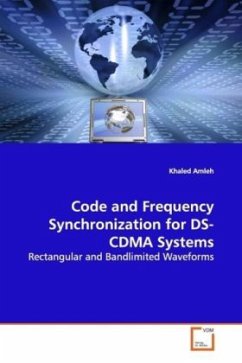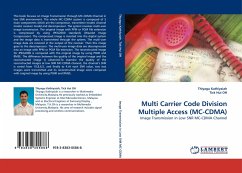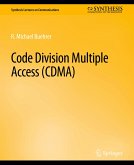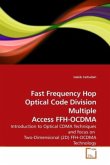Joint estimation of code timing and carrier
frequency offset for (DS) direct sequence CDMA
systems is investigated. The goal is to provide an
algebraic solution to the joint estimation problem,
in a near-far time-varying frequency-selective
fading channel.
First, the multiuser estimation is decoupled into a
series of single-user estimation problems; then,
analytical tools of polynomial matrices are invoked
for joint carrier and code timing estimation of the
desired user. The performance of the proposed study
is examined analytically, where expressions for the
variance of propagation delay and frequency offset
estimation errors are derived.
A subspace code-timing estimator for CDMA systems
that utilize bandlimited chip waveforms is also
presented. The proposed estimator relies on
converting the received signal to the frequency
domain, then, the code-timing estimates are obtained
by exploiting the uniquestructure of the spectra of
the spreading waveform. The proposed method can be
implemented both blindly and in a training-assisted
fashion.
frequency offset for (DS) direct sequence CDMA
systems is investigated. The goal is to provide an
algebraic solution to the joint estimation problem,
in a near-far time-varying frequency-selective
fading channel.
First, the multiuser estimation is decoupled into a
series of single-user estimation problems; then,
analytical tools of polynomial matrices are invoked
for joint carrier and code timing estimation of the
desired user. The performance of the proposed study
is examined analytically, where expressions for the
variance of propagation delay and frequency offset
estimation errors are derived.
A subspace code-timing estimator for CDMA systems
that utilize bandlimited chip waveforms is also
presented. The proposed estimator relies on
converting the received signal to the frequency
domain, then, the code-timing estimates are obtained
by exploiting the uniquestructure of the spectra of
the spreading waveform. The proposed method can be
implemented both blindly and in a training-assisted
fashion.








